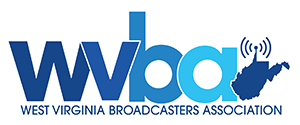Says Congress has the power and signals it must muster the bipartisan will
It is time for Congress to cut the endless loop of legal challenges and new net neutrality reg/dereg efforts, says NCTA-The Internet & Television Association President Michael Powell, but not with the Damoclean sword of Title II.

That is according to his prepared testimony for a House Communications Subcommittee hearing Thursday (Feb. 7) on the issue.
“In software programming, an infinite loop is defined as 'a piece of coding that lacks a functional exit so that it repeats indefinitely.' Similarly, the net neutrality issue is caught in an infinite loop. It is high time to debug this debate—avoiding approaches that will only perpetuate it—and reach a bipartisan resolution that puts in place a sound and enforceable set of rules.”
Related: Wheeler, Powell to Testify on Net Neutrality
Powell knows whereof he speaks. It was his open internet principles back in 2004 that arguably began the loop when a court ruled an FCC policy statement enforcing those rules was unenforceable as it applied to a complaint against Comcast over its management of BitTorrent peer-to-peer file sharing traffic, which the FCC had found was not reasonable citing those principles.
That led to rules, which were challenged in court and overturned, then to new rules under a different political appointee, that were upheld in court but nullified by yet another chairman, a decision which again was challenged in court. And, to quote Kurt Vonnegut, so it goes, or has gone, in a cycle that will continue until Congress clarifies the government's authority over internet regulation. It is a cycle Powell says can, and needs to, be stopped.
A divided Congress has essentially been watching from the sidelines, rooting for their particular side, making noises about legislation, but failing to come to any agreement on what legislation should look like—paid prioritization or no paid prioritization, for example—and what authority it should cite, Title II or the less regulatory Title I.
Powell points out that there is general consensus on his basic principles: "There should be no blocking or throttling of lawful content. There should be no paid prioritization that creates fast lanes and slow lanes, absent public benefit. And, there should be transparency to consumers over network practices."
The problem, he says, has been that the FCC doesn't have the "tools to make the rules," while the heretofore bystanding and kibitzing Congress (our observation, not Powell's) does have those tools.
“The FCC has struggled to adopt sustainable rules because it lacks a clear basis of jurisdiction on which to moor net neutrality rules that would apply to internet service providers," he says. "Figuring out what the rules should be has not been the problem. Rather, the problem for the Agency has been how to adopt appropriately targeted rules in the absence of clear congressional direction. If authority is the problem, congressional action is the answer.”
“Given the great dangers and slim benefits of Title II, and the unquestionable fact that Congress can adequately protect net neutrality without it, Congress has the opportunity and the tools to rewrite the script and end the infinite loop. Unlike the regulators, this institution has the constitutional power to create new legal authority," he says.
But he warns that does not mean trying to vest that power in Title II, the common carrier-reg based regime the FCC, under chairman Ajit Pai, reversed as a threat to investment and innovation, a threat Powell sees as well.
"If we can put down the Damocles sword of Title II and work in a constructive bipartisan manner, I pledge that our industry will enthusiastically support legislation and work tirelessly to help finally put in place a set of stable and enforceable net neutrality rules."
NCTA was on board with enforceable net neutrality rules once before, back in 2010 under Democratic FCC Chairman Julius Genachowski, but those compromise rules, signed onto by most ISPs, were challenged in court and the endless loop continued.
Powered by Finanznachrichten


